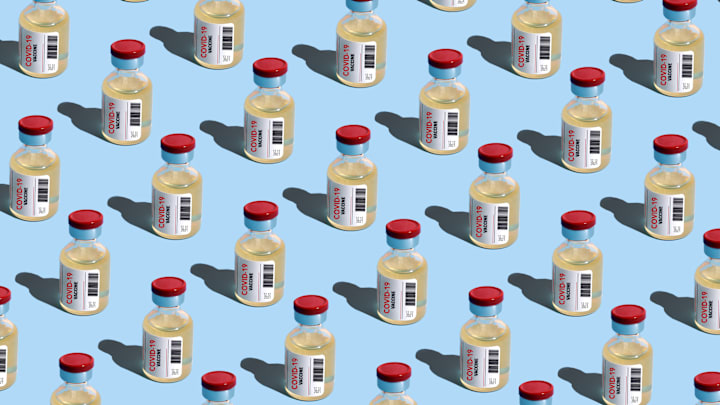As the world enters its third full winter co-existing with the coronavirus, we have a new weapon for warding off serious infections. Vaccines made available in late 2020 and early 2021 to fight earlier strains of the coronavirus have lost potency as new variants of the virus emerged. The FDA has approved new booster shots from Pfizer and Moderna that target the Omicron BA.4 and BA.5 subvariants, the current dominant strains in the U.S.
The CDC announced that starting this week, Americans can get those jabs. Here’s what you should know.
What do the new boosters do?
Pfizer's and Moderna's two-dose vaccines released in 2020–2021 were formulated for the dominant strain of coronavirus circulating at the time. So were the two companies' booster shots, released in fall 2021.
The new booster shots are bivalent, which means they target not only the original recipe strain but the now-dominant Omicron subvariants BA.4 and BA.5, which may make up roughly 90 percent of new infections. The boosters should better prepare the immune system to encounter these strains and reduce the risk of serious disease and death.
Do they replace the previous boosters?
Yes. The new boosters are able to address the original strain. If you’ve received just the initial two-shot original vaccine, it’s not necessary to have received a third or fourth booster before obtaining the Omicron-specific shot. You do, however, need to wait at least two months after your last coronavirus vaccine injection before getting a new booster. Some experts, however, recommend waiting up to six months. That’s because your body may still be generating an immune response and may not receive much benefit from a too-soon booster shot.
Do I still need to get the initial two-series vaccination?
Yes. People need to receive the original two-shot vaccine before obtaining an Omicron-specific booster.
What are the other eligibility requirements for receiving an Omicron booster?
The Pfizer booster has been authorized for those 12 and older; the Moderna booster is for those 18 and over. Unlike previous boosters, there is no other age or health threshold to meet, other than not having received a booster or initial two-shot series in the previous two months.
What if I’ve already had COVID?
Because it’s possible to be reinfected, those who have contracted the coronavirus should still consider a booster. Consult your doctor, but it’s likely you’ll want to wait four to six months following infection before having a booster administered.
Have the bivalent boosters been tested?
While these boosters have received approval from the FDA and CDC, they didn't undergo a full clinical trial because a similar vaccine targeting the BA.1 Omicron subvariant was tested earlier in the year. The new bivalent boosters are largely the same shots as the previous ones, tweaked only slightly to better target the new Omicron subvariants. For context, the flu shot does not undergo an annual study. It’s not yet known exactly how efficacious the booster will be in preventing or reducing serious disease.
Where can I go to get a new bivalent booster?
Most major pharmacy chains like CVS and Walgreens will offer the Omicron bivalent boosters and typically accept appointments online. As with prior coronavirus vaccinations, the shots will be free to the public.
